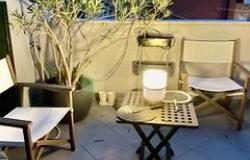 Italian police arrested a 35-year-old Iraqi man in Venice on Friday, accusing him of planning terrorist strikes in Iraq using ultralight helicopters bought in Italy.
Italian police arrested a 35-year-old Iraqi man in Venice on Friday, accusing him of planning terrorist strikes in Iraq using ultralight helicopters bought in Italy.
Saber Fadhil Hussien, allegedly the head of an al Qaeda cell, was arrested as he boarded a plane bound for Syria. Investigators said he was intending to meet a contact in the network of Abu Musab Al Zarqawi, the al Qaeda leader in Iraq.
According to Venice prosecutors, who had been probing Hussien since the end of 2006, the suspect was a longstanding resident of Italy with a home and family in Padua, where he ran a pizza and kebab shop.
Investigators said he had already arranged to buy several light aircraft from a manufacturer in Italy, pretending that he wished to set up a dealership in the Middle East.
His plan was to send the helicopters to Iraq where they could be used by terrorists to attack international forces there. The aircraft can fly low enough to avoid radar and could transport up to 250 kg of explosives.
It is believed to be the first time terrorist groups in Iraq have considered using light aircraft to overcome the tight security surrounding international forces in the country.
Venice's chief prosecutor Vittorio Borraccetti said Hussien had been providing logistical support for an al Zarqawi cell in Iraq for some time, sending around 4,000 euros a month for the purchase of weapons and to recruit suicide bombers.
"No terrorist act was planned against Italy," Borraccetti said.
After Hussien's arrest, police searched the homes of four Iraqis living in the Veneto region who are believed to be connected with him in some way.
Another Iraqi, an immigrant labourer living in Treviso, is also under investigation for terrorist activity because of his close relations with Hussien.
Thanks to wiretaps, investigators heard the two Iraqis voicing fiery support for al Zarqawi-organised terrorist attacks on international forces in Iraq.
Hussien and his group were driven by a hatred of Iraq's Shiite population and also, more recently, of Sunni tribes in the Al Anbar region of Iraq who oppose al Qaeda, Borraccetti said.
"The material gathered will be made available on the international network so as to aid the fight against terrorism," he added.













